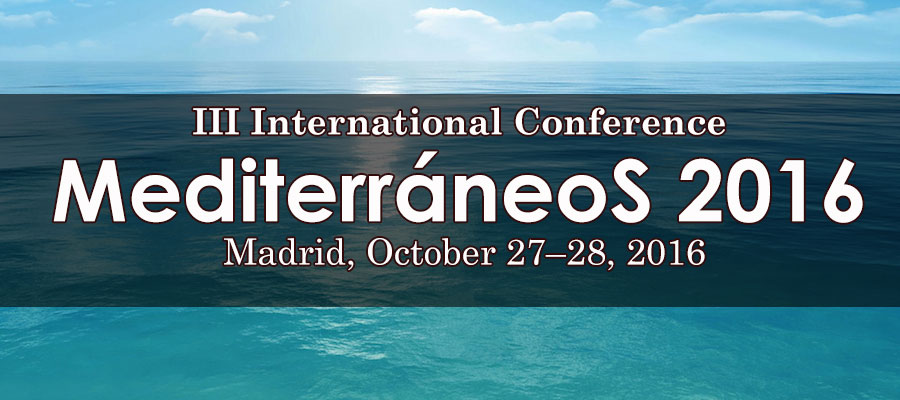III International Conference “MediterráneoS 2016,” Madrid, October 27–28, 2016
In the last decades, many researchers have questioned the validity of the notion “Mediterranean” as an intelligible unit of analysis, arguing that it responds rather to a modern discursive construction and that the unified perception of reality it entails is nothing other than fiction. Despite that, and even if many of these postulates are endorsed, the “Mediterranean” continues to be a tremendously useful tool when addressing particular issues that require a wider framework of analysis. The Mediterranean has been and still is a place for exchange and contact. A borderland, in some cases, with limits, but one with permeable and spongy limits that feeds itself from its different shores.
Embracing the legacy of the two prior editions (2010 and 2012), the aim of “MediterráneoS 2016” is that of recreating the space –imagined and reconstructed over and again– for dialogue, connection and transition, creating a transversal and interdisciplinary forum for discussion and reflection about the different intellectual, cultural and social manifestations that took place in the Mediterranean from Antiquity until the Early modern period.
We invite junior researchers in Humanities and Social Sciences, PhD students or Doctors at the beginning of their scientific career (having obtained the degree from 2011), to take part in these conferences by submitting their communications. These shall have a duration of up to 20 minutes. Communications are accepted in English, Spanish, French and Italian about the following themes:
- Philological Studies: Linguistics, textual criticism, literary analysis, new technologies and methods of investigation.
- Studies on Material Culture of Language: Indirect or literary sources (paleography, codicology, transmission and translation). Direct and documentary sources (papyrology and epigraphy).
- Social, Cultural and Science History: Reception process, cultural exchange and transfer between societies in connection. Identity construction and crisis. Philosophical, religious and magical ideas and practices; religious power and legitimisation.
- Artistic Manifestations and Material Culture as evidence and vehicle of transmission of religious, political and cultural ideology; tradition and innovation, assimilation and influence.
- Political Theory and History: Effective achievement of forms of power, authority models, ways of government, hierarchical relationships of intra- and superstate powers.
